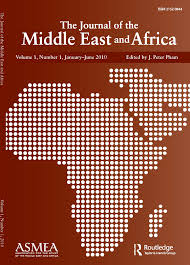Ofer Nordheimer Nur ~ Out Of Egypt
 Tablet. April 33, 2020. Earlier this year, more than 180 Jews gathered in the port city of Alexandria on Egypt’s Mediterranean coast to celebrate the reopening of the Eliyahu Hanavi Synagogue. This festive gathering for prayer, singing, and dancing was the largest Jewish event in Egypt since the demise of the community, most of whose members were pressured to leave in the 1950s. The opening of the synagogue, as well as an official ongoing authorization for an Israeli scholar to conduct research in Jewish sites of worship across Egypt, may signal no less than a new chapter in the history of the Jews in Egypt.
Tablet. April 33, 2020. Earlier this year, more than 180 Jews gathered in the port city of Alexandria on Egypt’s Mediterranean coast to celebrate the reopening of the Eliyahu Hanavi Synagogue. This festive gathering for prayer, singing, and dancing was the largest Jewish event in Egypt since the demise of the community, most of whose members were pressured to leave in the 1950s. The opening of the synagogue, as well as an official ongoing authorization for an Israeli scholar to conduct research in Jewish sites of worship across Egypt, may signal no less than a new chapter in the history of the Jews in Egypt.
The event took place in February under heavy security. The delegation was made up of Jews who were born in Egypt, accompanied by family, now living in Europe, Israel, the United States, and elsewhere. Two rabbis conducted the service, Rabbi Andrew Baker and the son of the last rabbi of the community of Alexandria, Rabbi Yosef Nefussi. The service was attended by the U.S. ambassador to Egypt, Jonathan Cohen, and also by former Israeli Ambassador David Govrin. During the service, 12 of the synagogue’s Torah scrolls were taken out and paraded, representing the 12 tribes of Israel.
Read more: https://www.tabletmag.com/sections/community/articles/out-of-egypt-nur


